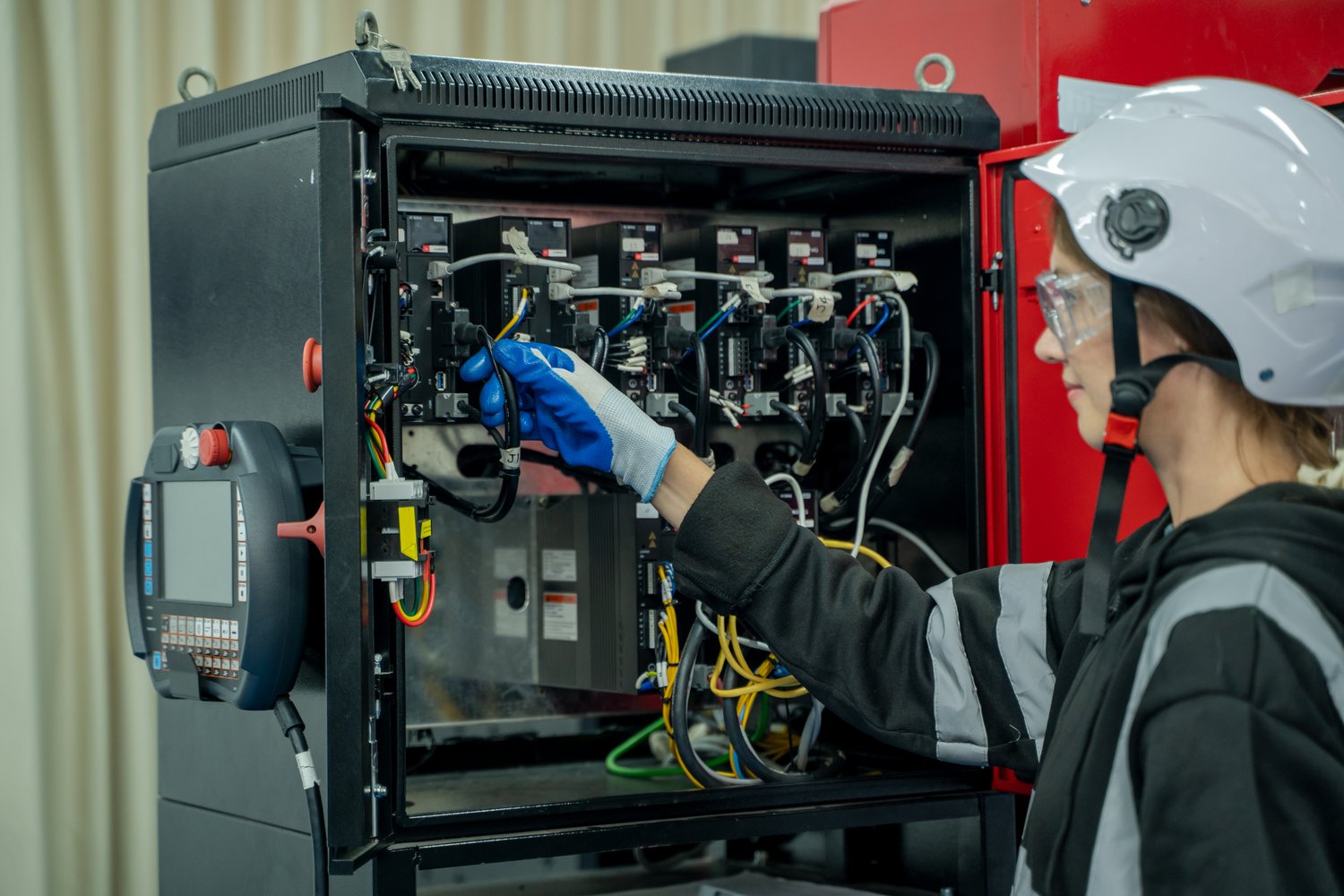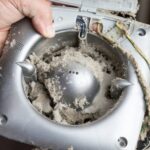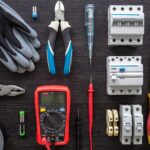Imagine being in the middle of an unexpected power outage, only to find that your generator refuses to start. This common yet frustrating scenario highlights the vital importance of understanding generator starting problems, ensuring you can rely on it when it matters most. In this guide, we delve into the specifics of diagnosing and troubleshooting these issues, empowering you to address them effectively and maintain your generator’s reliability.
- Identify typical starting problems such as dead batteries, fuel blockages, and mechanical faults, and determine their urgency.
- Explore DIY fixes and maintenance practices that can prevent and resolve starting issues efficiently.
- Learn when professional help is necessary and how to choose the right service for safe and effective solutions.
- Implement preventive measures and regular maintenance to extend the lifespan and enhance the performance of your generator.
By grasping the nuances of generator starting problems and adopting suitable strategies, you’ll ensure that your generator remains a dependable source of power. Dive into this guide to gain the knowledge and confidence to tackle any generator challenges that come your way.
Understanding Generator Starting Problems: A Comprehensive Guide
Generators are critical in providing backup power during outages, yet starting problems can disrupt their functionality when you need them most. Fully understanding these starting issues is essential. Typical signs include extended cranking, failure to start, or irregular running once started.
Common causes of generator starting problems range from electrical system failures, such as a dead battery, to fuel system issues, like fuel line obstructions. Mechanical faults can also hinder performance, often stemming from wear and tear or improper maintenance.
The importance of timely troubleshooting cannot be overstated. Addressing these issues promptly not only prevents further damage but also ensures your generator is ready whenever it’s called upon. Delayed solutions can lead to costlier repairs and prolonged downtime.
Identifying Common Generator Issues
Recognizing generator starting problems at the outset can save you time and resources. A dead battery is often the culprit, resulting in no response when you attempt to start the generator. Regularly checking battery charge levels is a simple way to mitigate this issue.
Fuel obstructions are another frequent problem. Blocked fuel lines or clogged filters can prevent the engine from receiving the necessary fuel, leading to operational hiccups. Ensuring fuel lines and filters are clean and clear is a practical step towards resolution.
Mechanical faults, such as worn-out spark plugs or electrical system failures, can be more challenging to diagnose but are vital to address. Ignoring these problems can escalate into more severe issues, making early detection and action imperative.
Assessing the urgency of each problem depends on the generator’s role and your reliance on it for essential power. If basic troubleshooting doesn’t resolve the issue, seeking professional help is advisable to ensure safe and effective repair.
DIY Fixes and Maintenance Tips for Generator Starting Issues
Generators are essential for maintaining power during outages, and ensuring they start smoothly is crucial for reliability. To address common generator starting problems, there are several DIY solutions you can try. Start by regularly inspecting the generator’s battery and terminals for corrosion or loose connections. Cleaning and tightening these components can often resolve starting issues quickly.
Another frequent cause of starting trouble is fuel-related issues. Ensure the fuel tank has sufficient, fresh fuel and that the fuel lines are clear of obstructions. Old or stale fuel can significantly impact the generator’s functionality, so periodically replacing it with fresh fuel can prevent issues.
Additionally, inspect the air filter and spark plug. A clogged air filter can restrict airflow, while a worn spark plug may affect ignition, both of which can lead to starting problems. Cleaning or replacing these components as part of regular generator maintenance can improve performance considerably.
By integrating these maintenance practices into your routine, you can effectively prevent and resolve generator starting problems, ensuring reliable power availability.
Professional Help: When to Call an Expert for Generator Starting Problems
While DIY solutions are effective for minor and routine issues, certain generator starting problems may demand professional expertise. If you encounter persistent starting difficulties that cannot be resolved with basic maintenance, it might be time to contact an expert.
Complex electrical issues, such as internal wiring problems or significant mechanical faults, should be handled by skilled professionals to prevent further damage and ensure safety. When a generator fails to start despite taking all precautionary measures, expert intervention is recommended.
Choosing the right service provider is essential for addressing complex issues. Look for licensed and experienced professionals who specialize in generator repair. Checking reviews and seeking recommendations can help you find a trustworthy technician.
By knowing when to call an expert, you can ensure the longevity and performance of your generator, avoiding potential costly repairs or replacements in the future.
Preventive Measures: Keeping Generator Starting Problems at Bay
Ensuring the reliability of your generator through effective preventive maintenance is crucial for seamless operation, especially during power outages. Regular upkeep not only extends the lifespan of your equipment but also minimizes the risk of generator starting problems that can disrupt your electricity supply when you need it most.
One key strategy involves routine inspection of the generator’s components. This helps in identifying early signs of wear and tear or potential issues such as loose connections, corroded terminals, and clogged fuel lines.
Maintaining an optimal fuel supply is another essential measure. Ensure that fuel is fresh and stored in suitable conditions to avoid condensation and contamination, which can lead to generator start failure. Regularly inspect the fuel system for leaks or blockages and replace fuel filters as recommended by the manufacturer.
Regular battery maintenance is also crucial in preventing starting problems. Ensure the battery is fully charged and its terminals are clean and secure. Testing battery capacity periodically can avert failures during critical times.
Another preventive measure includes updating and checking the generator’s software, if applicable. Keeping firmware current can enhance performance and rectify any existing technical issues that might lead to starting problems.
Implementing a scheduled maintenance routine, as advised in your generator’s user manual, can greatly reduce the likelihood of unexpected malfunctions. This schedule should involve professional servicing, where experienced technicians can carry out more in-depth evaluations and repairs.
Consider establishing a log of maintenance activities to track work done and parts replaced. This historical record can be invaluable for troubleshooting recurring issues and ensuring all aspects of upkeep are thoroughly addressed.
By incorporating these preventive strategies and adhering to a disciplined approach to generator maintenance, you can ensure optimal performance and dependability. Protecting your generator from common starting problems will not only save you time and money but also provide peace of mind during emergencies.
Frequently Asked Questions About Generator Starting Problems
Why won’t my generator start?
Common causes: dead battery, empty fuel tank, or clogged fuel lines. Check these components first.
How can I tell if my generator’s battery is dead?
Signs include an unresponsive start button or weak cranking sound. Test with a multimeter.
What should I do if there’s no fuel reaching the engine?
Check for obstructions in the fuel line and ensure the fuel valve is open.
How often should I perform maintenance on my generator?
Regular maintenance is recommended every 6 months or after 20-30 hours of use.
When should I call a professional to fix my generator?
Call an expert if there are complex mechanical issues or persistent electrical failures.
What are some preventive measures for generator starting problems?
Keep up with regular servicing, use high-quality fuel, and check electrical components.





